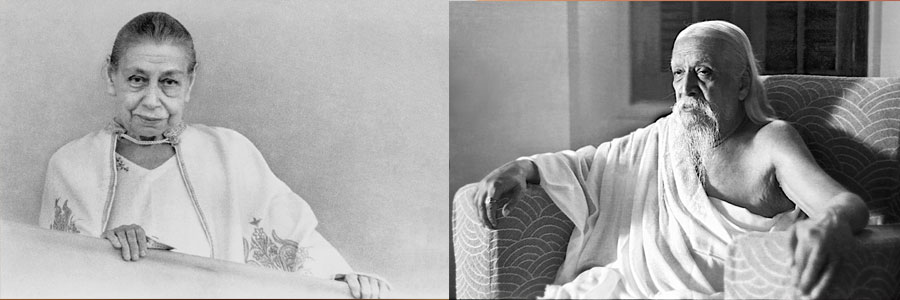
Our Story: Sri Aurobindo (born Aurobindo Ghosh; 15 August 1872 – 5 December 1950) was an Indian philosopher, yogi, guru, poet and nationalist. He joined the Indian movement for independence from British rule, for a while was one of its influential leaders and then became a spiritual reformer, introducing his visions on human progress and spiritual evolution.
Sri Aurobindo studied for the Indian Civil Service at King's College, Cambridge, England. After returning to India he took up various civil service works under the maharaja of the princely state of Baroda and became increasingly involved in nationalist politics and the nascent revolutionary movement in Bengal. He was arrested in the aftermath of a number of bomb outrages linked to his organisation, but in a highly public trial where he faced charges of treason, Sri Aurobindo could only be convicted and imprisoned for writing articles against British rule in India. He was released when no evidence could be provided, following the murder of a prosecution witness, Narendranath Goswami during the trial. During his stay in the jail, he had mystical and spiritual experiences, after which he moved to Pondicherry, leaving politics for spiritual work.
At Pondicherry, Sri Aurobindo developed a spiritual practice he called Integral Yoga. The central theme of his vision was the evolution of human life into a life divine. He believed in a spiritual realisation that not only liberated but transformed human nature, enabling a divine life on earth. In 1926, with the help of his spiritual collaborator, Mirra Alfassa (referred to as "The Mother"), he founded the Sri Aurobindo Ashram. His main literary works are The Life Divine, which deals with theoretical aspects of Integral Yoga; Synthesis of Yoga, which deals with practical guidance to Integral Yoga; and Savitri: A Legend and a Symbol, an epic poem.
The Mother
Mirra Alfassa (21 February 1878 – 17 November 1973), known to her followers as The Mother, was a spiritual guru, an occultist and a collaborator of Sri Aurobindo, who considered her to be of equal yogic stature to him and called her by the name "The Mother". She founded the Sri Aurobindo Ashram and established Auroville as a universal town; she was an influence and inspiration to many writers and spiritual personalities on the subject of Integral Yoga.
Mirra Alfassa was born in 1878 at Paris into a bourgeois family. In her youth, she travelled to Algeria to practise occultism under Max Théon. After returning, she travelled around the world and finally settled in Pondicherry, India, with Sri Aurobindo and his followers. With growing numbers of followers, the settlement was turned into an ashram over the years, where she worked with Sri Aurobindo in establishing Integral Yoga and guiding its pupils. In 1943, she started a school in the ashram and in 1968 established Auroville, an experimental township free from discrimination of nationality, language, creed and politics. She died on 17 November 1973 in Pondicherry. The experiences of the last thirty years of Mirra Alfassa's life were captured in the 13-volume work Mother's Agenda by Satprem who was one of her followers.